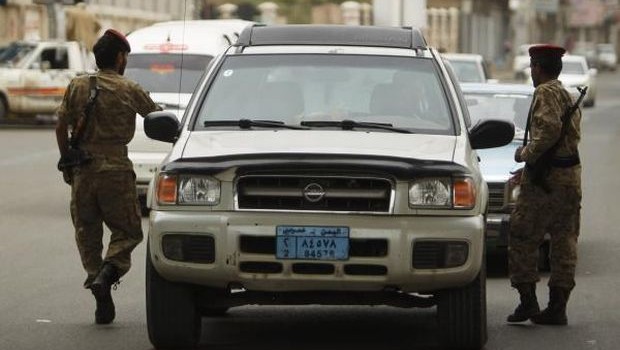This, coupled with the increase in the number of kidnappings of foreigners, has meant that those foreigners who do remain have faced even tighter security restrictions, with many of those working for international organisations forced to stay indoors for two days over the initial two days the US had reported its embassy would close. Rod Liddle, in the UK’s Spectator magazine, does not have much time for these remaining foreigners—he charmingly thinks that any Briton visiting this “maniac-bedevilled wasteland” is a terrorist, or mentally ill.
On the same day that the news of the embassy closures broke, Sana’a was woken up from its Ramadan-morning lie-in by the sound of heavy artillery echoing off the mountains that enclose it. News filtered through that there had been some sort of clash between disgruntled soldiers belonging to the former Republican Guards and presidential guards at Sab’een Square, near the Presidential Palace. ‘Some sort of’ is a deliberately vague choice of words; reports differ from each other concerning what happened, with some talking about an unpaid Ramadan bonus, others the continuation of a barely behind the scenes power struggle between former President Saleh (the Republican Guards was loyal to him in 2011) and the new powers that be, and word of mouth talking of a trigger happy commander of the presidential guards. What is definite is that one soldier was killed, and resentment amongst disaffected groups will increase.
Ramadan has also not been free of sectarian tension. The Tayseer Mosque in Sana’a witnessed clashes between members of the Zaydi Shi’a Houthi group and Sunnis over a prayer disagreement, something very unusual considering the normally peaceful coexistence between the various different religious denominations of Sana’a. One of the Sunni men later died from his injuries, and the banner depicting the Houthis slain leader, Hussain Al-Houthi, continues to be displayed in the mosque.
Reading all of this, it is perhaps not surprising to hear that Sana’a is a tense city, full of fear and foreboding. It has been reported that tanks are visible on the city’s streets, and that the city is under lockdown, in fear of the upcoming Al-Qaeda doomsday scenario.
The truth is, that’s nonsense.
Life is continuing as normal, or as normal as it can be for a city that witnessed a year of continuous mass protests that only ended just over a year ago, and one that suffers from frequent blackouts.
The streets are packed, full of concerned and impatient faces. But ask them what they’re concerned about, and they’ll tell you it’s the last minute Eid shopping, as well as the terrible traffic down Zubayri Street.
Terrorist plot? It’s not really on many people’s lips. Ramadan gatherings have largely focused on events going on in Egypt. Some of the few who are talking about the embassy closures are comparing the international community’s reaction to a possible terrorist threat, to the very real threat that this country’s people face from US drone attacks, which killed more people this past month.
Sure, no one is denying that the situation is bad. Many Yemenis had hoped optimistically that things would get better as soon as Saleh was removed. Yet, Yemenis continue to do what they do best, rely on themselves.
In Sana’a, life goes on.
This article was originally published in The Majalla.

